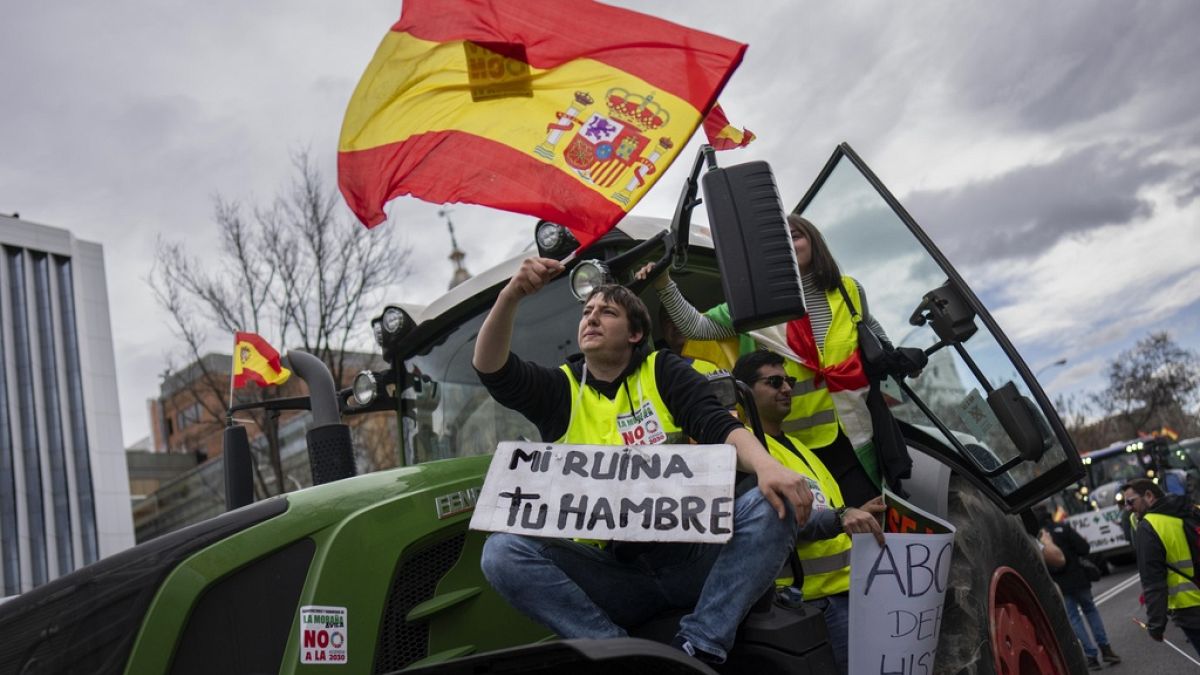In Valencia, European far-right parties are mobilizing farmers to oppose key EU progressive policies, such as the Green Deal. These parties, including Platform 6-F in Spain, are pushing back against environmental initiatives, protection of the European internal market, and free trade agreements that they believe threaten their livelihoods. While some members of the Platform 6-F have ties to far-right figures, the group insists it is an independent movement and is not officially backing any specific party. The group has adopted tactics such as the “Kick Them Out” campaign, which was successful in the Netherlands, to highlight parties that have not supported farmers’ interests.
Despite the rise of movements like Platform 6-F, major agricultural associations have opted to influence political parties rather than field direct candidacies in the upcoming European elections. The SOS Rural platform, representing over 500 primary sector organizations, is working to shape policies and lobby major political groups in Europe to address the concerns of rural communities. While some similarities exist between SOS Rural and Spain’s Vox party, SOS Rural has distanced itself from the more conservative stances of Vox. However, protests against EU agricultural policies could still benefit Vox, as seen when Yellow Vests’ votes in France ended up supporting far-right parties like Rassemblement.
The grassroots movement in Europe against progressive EU policies aims to capitalize on farmers’ frustrations and channel them into political influence. Rallying against what they see as burdensome regulations and trade agreements that threaten their livelihoods, farmers across Europe are finding common cause with far-right parties who are championing their interests. However, the relationships between these grassroots movements and far-right parties are varied, with some groups distancing themselves from the more extreme elements of the far-right while still aligning on key policy positions.
The European far-right’s strategy to appeal to rural voters and capitalize on anti-EU sentiments is evident in the tactics utilized by groups like Platform 6-F and SOS Rural. By highlighting the negative impacts of EU policies on farmers and promoting a sense of victimhood, these groups are framing themselves as defenders of rural communities against an uncaring and distant EU bureaucracy. The success of these movements in influencing election outcomes remains to be seen, but their ability to mobilize and amplify the voices of rural communities cannot be underestimated.
As the European far-right seeks to consolidate power and influence through alliances with grassroots rural movements, the battle for the rural vote is intensifying. Whether these groups will be successful in their efforts to undermine progressive EU policies and secure political victories in the upcoming elections remains uncertain. However, the emergence of these groups as significant players in European politics underscores the need for mainstream parties to engage with the concerns and grievances of rural communities in order to prevent the rise of more extreme and divisive forces in European politics. By addressing the legitimate issues facing farmers and rural communities and offering viable solutions, mainstream parties can effectively counter the narrative of the far-right and build a more inclusive and sustainable future for all Europeans.











